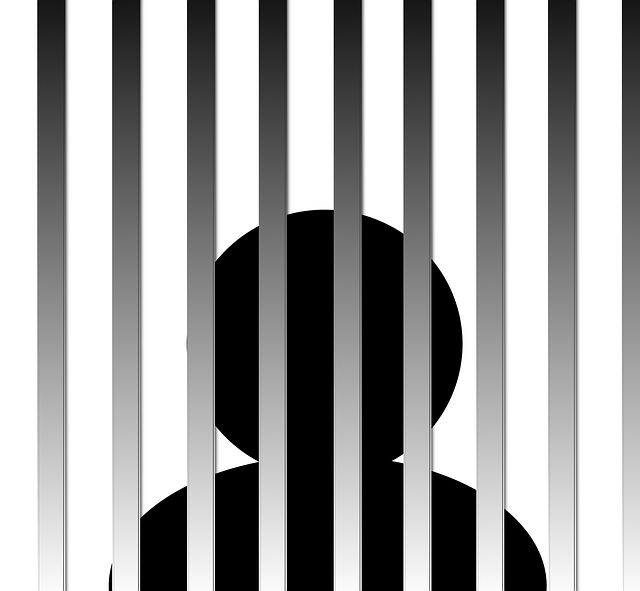Teen rehabilitation offers a transformative path for young individuals, including tourists facing DUI charges, by addressing underlying issues and promoting personal growth. Through structured activities, therapy, and mentorship, teens gain essential life skills to learn from their mistakes, regain confidence, and make better choices. Early intervention programs target at-risk teens, educating them about the dangers of impaired driving and providing support systems to avoid severe legal consequences. Therapeutic methods include individual, group, and family therapy, focusing on safe expression, peer support, and family dynamics. Post-rehab, structured support through peer groups and tailored counseling prevents relapse, teaching healthy coping mechanisms and managing challenges, including DUI defense for tourists with specialized programs catering to their unique needs.
Teen Rehabilitation Back on Track offers a comprehensive guide to helping young individuals find their path to recovery. Exploring crucial aspects of teen rehab, this article delves into effective strategies such as understanding rehabilitation’s role as a second chance and examining therapeutic approaches tailored for this demographic.
Key topics include the significance of early intervention, successful post-rehab support systems, and a specific focus on navigating DUI defense for tourists facing unique challenges in the legal system.
- Understanding Teen Rehabilitation: A Crucial Second Chance
- DUI Defense for Tourists: Navigating Legal Waters
- The Impact of Early Intervention Programs
- Therapeutic Approaches in Teen Rehab
- Supporting Teens Post-Rehab: Strategies for Success
Understanding Teen Rehabilitation: A Crucial Second Chance

Teen rehabilitation offers a crucial second chance for young individuals who have found themselves in challenging situations, especially after facing charges like DUI (Driving Under the Influence). This process is designed to address underlying issues, promote personal growth, and guide teens back onto a positive path. For tourists facing DUI defense, rehabilitative programs can provide a supportive environment, offering specialized services tailored to their unique needs and cultural backgrounds.
Understanding rehabilitation as a tool for transformation empowers both teens and their communities. By participating in structured activities, therapy sessions, and mentorship programs, young people can develop essential life skills, learn from their mistakes, and gain the confidence needed to make better choices. This supportive journey helps break down barriers, rebuilds trust, and paves the way for a brighter future, ensuring that tourists facing DUI charges have access to comprehensive support systems during their rehabilitation process.
DUI Defense for Tourists: Navigating Legal Waters

Tourists visiting a new city, especially those engaging in activities that involve alcohol, need to be aware of their legal obligations and rights, particularly when facing a DUI (Driving Under the Influence) charge. Navigating a foreign jurisdiction’s legal system can be challenging, and understanding the local laws is crucial for an effective DUI defense. Many tourists may not realize that traffic laws and penalties vary significantly from one place to another.
When accused of DUI while on vacation, it’s essential to seek legal counsel promptly. A skilled attorney who specializes in DUI defense can help visitors understand their rights, interpret local regulations, and build a robust case. This support ensures tourists receive fair treatment, especially if they are unfamiliar with the area’s legal framework. Efficient navigation of these legal waters can significantly impact the outcome of the case, potentially leading to reduced charges or even dismissal.
The Impact of Early Intervention Programs

Early intervention programs play a pivotal role in teen rehabilitation, particularly when addressing issues like substance abuse and reckless behavior, including DUI (Driving Under the Influence) incidents involving tourists. These programs recognize that immediate action is key to preventing long-term consequences for at-risk teenagers. By reaching out to young individuals early on, before their lives spiral out of control, these initiatives offer a chance for course correction.
Tourist DUI cases often highlight the need for such programs, as youths may engage in risky behavior due to peer pressure or a lack of understanding of the law, leading to severe legal and personal repercussions. Early intervention can break this cycle by educating teens about the dangers of substance use and impaired driving, providing counseling, and offering support systems to help them make better choices and avoid costly mistakes that could impact their future, including potential DUI defense challenges.
Therapeutic Approaches in Teen Rehab

In teen rehabilitation centers, various therapeutic approaches are employed to address the unique needs of young individuals facing challenges. One key method is individual therapy, where counselors create a safe space for teens to express their thoughts and feelings, helping them understand and manage underlying issues contributing to their behaviors, including potential DUI (Driving Under the Influence) incidents involving tourists. Group therapy sessions also play a vital role, fostering peer support and encouraging open communication about experiences and strategies for coping with addiction or other problems.
Additionally, many rehab programs incorporate family therapy, recognizing that teen behavior is often influenced by family dynamics. By engaging parents or guardians, therapists can improve the home environment, reduce risk factors, and provide tools to better support their teenager’s recovery. These therapeutic interventions aim to empower teens, equip them with healthy coping mechanisms, and prevent future relapses, especially in high-risk situations like those encountered by DUI defense tourists facing rehabilitation.
Supporting Teens Post-Rehab: Strategies for Success

After completing a rehabilitation program, teens face a critical phase of reintegration and support to maintain their recovery. This transition period requires a structured approach to help them avoid relapse and successfully navigate back into daily life. One effective strategy is to connect them with peer support groups where they can find understanding and encouragement from peers who have gone through similar experiences. These groups provide a safe space for open dialogue, fostering a sense of community and shared purpose.
Additionally, offering ongoing counseling services tailored to teens’ unique needs is vital. Individual therapy sessions can help address underlying issues contributing to their substance abuse, while group counseling facilitates the development of healthy coping mechanisms and communication skills. Furthermore, educating both teens and their families about potential triggers and relapse prevention techniques empowers them to manage challenges effectively. For tourists facing DUI charges, accessing these support systems might be facilitated through local community resources or specialized programs designed to accommodate their unique circumstances.
Teen rehabilitation centers play a vital role in guiding young individuals back onto a positive path. By offering comprehensive programs that combine therapeutic approaches, early intervention, and post-rehab support, these facilities provide a second chance at success. In particular, understanding the unique needs of tourists facing DUI charges is essential, as effective defense strategies can navigate legal waters, ensuring better outcomes. This holistic approach to teen rehab empowers young people to overcome challenges, fostering indelible change for a brighter future.






